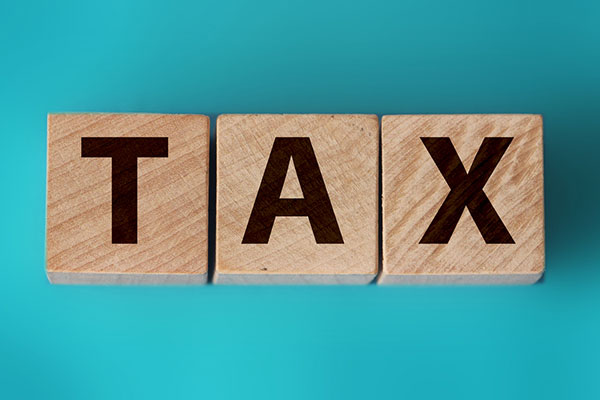Could your pension be the solution to your inheritance tax woes?
15th June 2023 10:51
by Rachel Lacey from interactive investor
It’s often referred to as the most-hated tax in the UK, but there’s a new way to make sure you pay as little as possible or none at all.

Inheritance tax, or IHT, is often described as a ‘voluntary’ tax, and for those who are on top of the game there are plenty of ways to – legally – avoid paying it.
- Our Services: SIPP Account | Stocks & Shares ISA | See all Investment Accounts
Typically, that focuses around using tax-free gifting allowances and giving your wealth away. You can also use investments that qualify for business or agricultural relief, set up trust arrangements to shelter your wealth from tax, or arrange whole of life insurance.
But following recent legislative changes, eyes are turning to another, potentially unsung option, and that’s your pension.
Pensions and IHT
Defined contribution pensions are useful from an inheritance tax point of view because when you die, death benefits will fall outside your estate.
Steve Webb, partner at consultants LCP explains: “As things stand, pensions have a relatively favourable treatment when it comes to inheritance tax. Whereas wealth held in ISAs or other investments is generally fully included in the estate for IHT purposes, pension wealth is not.”
Ross Lambert, a director at Mazars adds: “The advantage is that an individual has full access to the funds throughout their life with no restrictions. The pension can be invested in a magnitude of ways from cash to stocks and shares, even commercial property. This means it does not have to be high risk. It doesn’t require new and potentially complex structures and can form a simple way to manage an estate.”
And, following announcements made in the Spring Budget, it has become easier to invest larger sums into your pension, with Chancellor Jeremy Hunt announcing the abolition of the lifetime allowance. This had previously capped the maximum value of your total pension wealth at £1,073,100 – any savings in excess of that could be hit with a punitive 55% tax charge.
Defined benefit, or final salary pensions can’t be used in the same way because they don’t pay a lump sum to beneficiaries on death, with income normally only being preserved for spouses or dependents.
So can I just plough all my money into my pension now?
Unfortunately, pensions are not simple and a proliferation of technicalities mean you can’t necessarily plough all of your wealth into your pension.
For example, the annual allowance still limits the amount you can pay into your pension each year and still get tax relief on contributions. This is currently 100% of your income for the year, up to a maximum of £60,000 (following an increase from £40,000 on 6 April 2023).
Those who have already started taking taxable income from their pension, however, will be subject to the lower money purchase annual allowance (MPAA), which is now £10,000 a year (up from £4,000 a year on 6 April).
- Give away your wealth to save mega tax bill: your guide to gifting rules for IHT
- Grandparental giving: sharing your wealth and seeing the benefits
A reduced allowance also applies to those with earnings over £260,000.
Theoretically, you could breach your allowance and pay a tax charge instead. However, it would make sense to get advice before taking this course of action to ensure there isn’t a better alternative. You may also need access to capital to pay that tax charge.
Another point to be aware of is that tax relief is only paid on pension contributions made before your 75th birthday.

Tax on inherited pensions
It’s also important to note that even though no IHT will be payable on an inherited pension, that doesn’t necessarily mean it will be paid tax free.
Death benefits on inherited pensions will only be tax free if you die before age 75. However, if you die after your 75th birthday, tax will be payable on that money at your beneficiaries’ personal rate of income tax.
This means it may not be tax-efficient to cash in the pension as a lump sum, especially if they pay higher or additional rate tax. They may be better off leaving the pension invested or taking income and paying tax as they go. This may put paid to any plans you or they might have to use their inheritance to buy a house or start a business.
- When it’s time to start spending: how to spend your wealth and cut your tax bill
- Five ways to take control of inheritance tax
The position is different if you have used your pension to purchase an annuity. Annuities cannot be passed on in the same way as pensions, and payments will usually stop when you die unless you have arranged any guarantees, value protection or have arranged for payments to continue for a spouse.
Do I need to put my pension in my will then?
While putting your pension in your will might be the logical way of spelling out who you want to inherit your pot, it’s much more important that you communicate your wishes to your pension provider.
This is because your will only covers your estate, and your pension will fall outside your estate.
To ensure your pension goes to the right person you need to tell your pension provider who you want to inherit it. You can do this by completing an ‘expression of wishes’ or ‘nomination’ form.
Pension providers have the discretion to choose who they pay your death benefits to – it’s this feature that enables them to be paid outside of your estate and remain free of IHT.
This is why it’s vital that you complete the necessary paperwork for all your pensions and update them whenever your circumstances change, for example you divorce or remarry. Pension providers will always try to ensure death benefits go to the right person, but without your guidance it may not end up where you would want it.
It might be easier at this point to consider consolidating your pensions if you’re managing a handful of them. In addition to potentially reducing costs, one pot should reduce the admin load.
You should also consider whether your existing pensions will offer the flexible access that your beneficiaries would need and consider a transfer if not.

Could your pension be part of your IHT strategy?
An important consideration for anyone wanting to turbocharge their pension to avoid paying IHT is that there is no guarantee that pension rules wouldn’t be changed by a future government.
“The Labour Party has already indicated that it would reverse the abolition of the lifetime allowance, so people should always recognise that there’s a risk that if they do build up pension wealth in excess of the previous LTA limit, it could still end up being subject to some form of tax charge.”
Lambert agrees: “Before April 2015, funds left in a pension on death were subject to a 55% tax charge. This was higher than IHT. As such, there’s a precedent and if viewed that these are funds that previously obtained income tax relief, you can see why a government might look to recoup this, as well as the inheritance tax that they would otherwise receive.”
- Earning £100,000 or more? Try these tricks to avoid a massive tax bill
- Are lifestyle retirement funds right for the 100-year life?
Even if you’re prepared to risk it – or aren’t in danger of breaching the old lifetime allowance – limits to the amounts you can pay in may mean you’ll need to pump up your pension gradually over the years, rather than relying on big one-off top-ups.
You may also need to think about how you would want your beneficiaries to use your pension. If you wanted it to boost their own retirement income it could be a wise move, but be less effective if you want to pass on a lump sum – especially for higher-rate taxpayers.
For most IHT payers, pensions are likely to be another weapon in their armoury, rather than a solution in their own right.
Similarly, integrating your pension into your IHT plans doesn’t only need to involve paying more into it - it could just be a case of reordering how you spend your assets.
Webb says: “There would be an argument for someone who holds both pension wealth and stocks and shares ISAs to draw down on their ISA first if they are concerned about IHT.”
The arguments would also be different for people in very poor health who may not live until age 75.
Whatever your situation though, it’s important to bear in mind that this is a complicated area of financial planning and advice from a specialist IFA or solicitor could be a very sensible investment.
These articles are provided for information purposes only. Occasionally, an opinion about whether to buy or sell a specific investment may be provided by third parties. The content is not intended to be a personal recommendation to buy or sell any financial instrument or product, or to adopt any investment strategy as it is not provided based on an assessment of your investing knowledge and experience, your financial situation or your investment objectives. The value of your investments, and the income derived from them, may go down as well as up. You may not get back all the money that you invest. The investments referred to in this article may not be suitable for all investors, and if in doubt, an investor should seek advice from a qualified investment adviser.
Full performance can be found on the company or index summary page on the interactive investor website. Simply click on the company's or index name highlighted in the article.